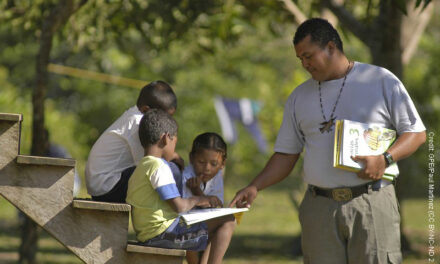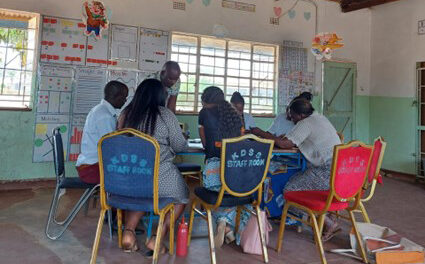This blog was written by Melanie Ehren, Vrije Universiteit Amsterdam.
Teaching quality remains the most critical factor in improving student learning outcomes. Yet many well-intentioned accountability systems—from attendance monitoring to curriculum compliance checks—may be missing the mark. Our research across six countries (South Africa, Honduras, India, Nepal, Pakistan and Afghanistan) reveals a striking pattern: teachers respond very differently to accountability measures, and these responses determine whether students actually benefit.
The challenge we discovered
Some teachers simply complied with external requirements, even when doing so did not help their students learn. Others used accountability standards as starting points for thoughtful decision-making about what their students truly needed. This raises a fundamental question for all of us working in education systems:
How can we design accountability that empowers teachers to improve student learning and wellbeing, rather than restricting their professional capacity?
The path forward: Accountability for learning, not control
Our research points to a clear principle: accountability systems must prioritise learning, support, and professional growth over standardisation and control.
Here is what this looks like in practice:
- Make feedback meaningful and individual
Those who evaluate teachers—principals, supervisors, inspectors—should provide feedback tailored to each teacher’s context.
Do: Observe and discuss how teachers implement curriculum. Ask: “Are students actually understanding what’s being taught? How are you building knowledge progressively in each subject? What’s working well, and where are students struggling?”
Don’t: Simply check whether workbooks match prescribed curriculum requirements word-for-word.
- Start with trust and professional respect
Teachers are professionals who want their students to succeed. Our language and approach must reflect this fundamental assumption.
Do: Engage teachers as partners. Ask: “What support do you need? What challenges are you facing? Where would you like to strengthen your practice?”
Don’t: Talk about teachers as problems to be fixed rather than talking with them as professionals seeking to improve.
- Create conditions for success before demanding results
Accountability without adequate support is both unfair and ineffective.
Do: Ensure teachers have quality initial training, living wages, essential resources (textbooks, basic facilities), and ongoing professional development before implementing accountability.
Don’t: Hold teachers responsible for outcomes they cannot reasonably achieve given poor training, inadequate pay, or lack of basic teaching materials.
The bottom line
Effective accountability is not about catching teachers doing things wrong—it is about creating systems that help them do things better. When we shift from controlling to supporting, from standardising to individualising, and from punishing to developing, we create the conditions where both teachers and students can thrive.
The question isn’t whether we need teacher accountability. The question is: what kind of accountability will actually serve our students?
What accountability practices have you seen that truly support teacher growth? How might we begin implementing these principles in your context?
Watch a brief summary of the ‘Improving teaching practices through accountability’ programme:
——
Background information
These insights come from a synthesis study ‘Teacher accountability to improve learning outcomes; synthesis of 4 Raising Learning Outcomes (RLO) studies’ (Grant Ref: ES/X013987/1). The synthesis draws on data from four underlying studies and summarises findings from previous RLO studies in South Africa, Mumbai and Kathmandu, Honduras, Afghanistan and Pakistan (ES/P005888/2; ES/P005489/2; ES/T000422/1; ES/P005799/1). The above summary provides high-level insights that do not represent each system individually.
- Accountability, capacity and trust to improve learning outcomes in South Africa; a systems approach (ES/P005888/1 transferred to ES/P005888/2)
- Organizational Perspectives on Accountability and Learning: School Management Models and the Social Impact of Schooling in Mumbai and Kathmandu (ES/P005489/1 transferred to ES/P005489/2)
- Examining Effective Teaching in Rural Honduran Secondary Schools (ES/M004864/1 transferred ES/T000422/1)
We are grateful for funding from the ESRC/FCDO ‘Raising Learning Outcomes’ programme.





